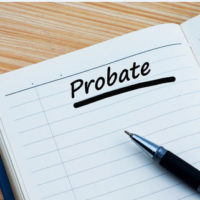How Payable On Death Accounts Fit into Florida Estate Planning

A “transfer on death” account (also known as “payable on death” or “in-trust-for” accounts, or “Totten trust”) allows joint account holders (of a bank account, etc.) to dictate who receives the funds or assets once that the second owner dies. These accounts are managed based on state law; for example, Florida does not allow for real estate to be transferred via transfer on death deeds; instead, it has what’s called a “Lady Bird” deed, which functions very similarly to a transfer on death deed in allowing for ownership of real estate to be transferred outside of probate to a beneficiary.
The Law in Florida
Still, a transfer on death beneficiary can receive other account and real/personal property, with the exception of retirement accounts, including IRAs, which are governed by federal law. In Florida, assets passed on in this way are governed under the Payable on Death statute, whereby an account passes onto the named beneficiary upon your death; without passing through probate. These beneficiaries can include children, friends, relatives, etc., however, the spouse must provide consent when a transfer on death account agreement provides funds to someone other than the spouse.
Taking Control & Potential Hurdles
Taking control of the account is usually a fairly simple, straightforward process: a death certificate and ID, as provided to the account custodian (i.e. bank) is usually al that is required. Keep in mind, however, that these accounts are still technically part of the decedent’s estate, and therefore may be subject to taxes, as well as creditors. In addition, having more than one beneficiary involved of course makes the process more complicated.
Some account custodians also mandate that the beneficiary provide an affidavit that the account owner was free of debt, and sometimes even proof that the decedent was a resident in the state in which the account is located at the time of their death, because they may face liability if they do not take the proper precautions in distributing these accounts. Account custodians can also mandate a number of other agreements in its terms to release the account, such as placing responsibility for any liability on the decedent’s estate in an effort to insulate itself from costs and liabilities, and they can sometimes require that a number of conditions be satisfied if there are multiple beneficiaries involved, such as equal beneficiary shares, although most transfer on death agreements involve the account owner designating different percentages to each beneficiary.
If a transfer on death account does not name any beneficiary, the account is then paid out to the estate, whereby the decedent’s will takes over.
Contact Our Florida Probate Attorneys to Find Out More
If you have any questions about Payable on Death accounts in Florida, contact our experienced estate planning and probate attorneys at the office of Gierach and Gierach, P.A. to find out how we can be of assistance.
Resource:
kiplinger.com/article/retirement/T021-C032-S014-transfer-on-death-accounts-and-your-estate-plan.html
